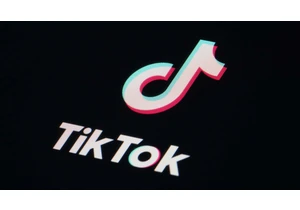This story is part of Fast Company’s Most Creative People in Business 2022. Explore the full list of innovators who broke through this year—and had an impact on the world around us.
It began with ivory. Gretchen Peters—a former investigative journalist who had spent years studying how organized criminal networks in conflict zones such as Afghanistan profited from endless wars—was frustrated by Facebook’s unwillingness to combat illegal wildlife trading, which was happening in plain sight across its platform. She and a group of fellow online crime researchers decided to do something about it.
The existing legal framework gives tech platforms broad immunity for most content posted by their users, and so Facebook, Peters realized, had no real incentive to tamp down on the vast criminal networks of wildlife traders that were facilitating the extinction of elephants and rhinos. Peters and her colleagues tried an unusual legal strategy: In 2017, they filed a confidential complaint with the Securities and Exchange Commission, arguing that Facebook, as a publicly traded company, was violating federal law by profiting from the wildlife trade and not disclosing the extent of this criminal activity to investors. (Peters has since coordinated the filing of six additional chapters to the complaint, each diving deeper into the presence of crime on Facebook. The social media giant didn’t reply to requests for comment, but Facebook has pointed out that it warns investors about illicit content in its filings.)
The SEC complaint didn’t force Facebook to fix its wildlife problem, but it did attract the attention of nonprofits and academics around the world who were working to combat various different areas of organized crime—gun sales, illegal drugs, bogus pharmacies, human trafficking, timber trading, the sexual exploitation of minors, and more. While these groups were tackling seemingly disparate causes, ultimately they all faced the same problem. Transnational organized crime operates largely unimpeded on social networks like Facebook, Twitter, Snapchat, and YouTube, and existing regulations (notably Section 230 of the Communications Decency Act of 1996 in the U.S., which has global impact) allows tech companies to look the other way.
Reached for comment, Snapchat and Twitter said illegal activity violates their guidelines and they work diligently to remove it through various means; YouTube parent Google did not provide a comment, although YouTube likewise explicitly prohibits illegal activity or content that encourages it.
After meeting with various anti-crime nongovernmental organizations for months, Peters and her counterparts came to the same bleak conclusion about the proliferation of international crime on social media. “One day about six months into it, we were like, fuck, we’re gonna have to do something about this,” she says,” “because nobody else is going to do it.”
In late 2018, she launched the Alliance to Counter Crime Online (ACCO), a global but “scrappy” consortium of more than 40 members with the shared mission of educating lawmakers and regulators about the unimaginable scale of online crime. Through congressional testimony, debriefings on crime issues to relevant committees, and outreach to lawmakers in Washington, D.C.; the EU; Canada; and Australia, the group is actively trying to get legislative reform “across the finish line” in a major jurisdictional market, which could then spur changes globally.
What’s the ideal legislative fix? According to Peters, social media companies should be held to the standard of “duty of care,” a concept in tort law through which parties can be held accountable for negligent behavior. It’s an idea that supporters say is long overdue for online platforms. And legislators are finally paying attention—most notably in the U.K., where ACCO has briefed government staffers working on a proposed Online Safety Bill that would impose duty of care to social networks. The bill in its current form has its share of critics, including those who say it’s overly broad and could stifle legitimate free expression, but it could also signal a critical turning point in the broader discussion about social media’s responsibilities.
“The argument we make is that selling OxyContin tablets on Snapchat or selling a kid for sex on Facebook’s marketplace is not free expression,” Peters says. “It’s a crime.”
Connectez-vous pour ajouter un commentaire
Autres messages de ce groupe

At Visa’s ETA Transact event on April 3, the payments giant introduced three new products designed to simplify and secure payment acceptance. These innovations—Authorize.net 2.0, Unified Checkout,


Rumors of a Tumblr comeback have been bubbling for a couple of years—think a pair of Doc Martens here, a splash of pastel hair dye there. Now, Gen Z is embracing the platform as a refuge from an i

You can’t talk about the manosphere without mentioning Andrew Tate. The British-American influencer and former professional kickboxer built his platform by promoting misogynistic ideas—claiming wo

UFC is joining up with Facebook’s parent company


As the deadline to strike a deal over TikTok approaches this week, President Donald Trump has signaled that he is confident his administrat
